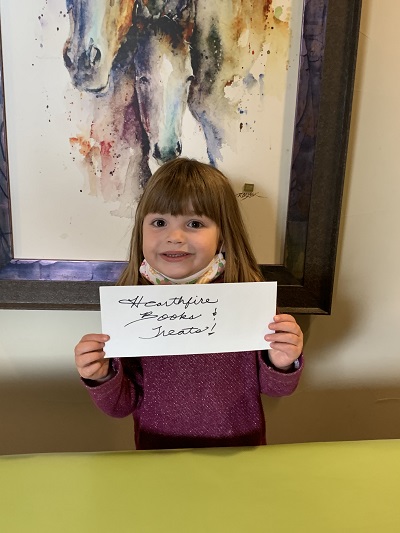COLORADO’S BEST PEDIATRIC DENTIST
Pediatric dentistry often plays the understated role in the broader field of dentistry, akin to the lesser-known but equally important sibling among dental specialties. Yet, it carves out its niche with unparalleled gentleness and child-centric approaches. This unique character sets it apart in the extensive world of dental care, offering a distinct experience that positions pediatric dentistry as a category in its own right.
Key areas within pediatric dentistry include preventive care, early detection, orthodontics, and behavior management, each known for their tailored approaches to children’s dental health. Pediatric dental care also stands out, offering comprehensive but gentle care designed specifically for young patients. Digging a bit deeper, each aspect of pediatric dentistry presents its own set of techniques, developmental considerations, psychological approaches, and recommendations for ongoing care.
The following sections will explore these aspects in detail, providing a richer understanding of what makes pediatric dentistry an essential and cherished specialty in the dental field.
 WHAT IS A PEDIATRIC DENTIST?
WHAT IS A PEDIATRIC DENTIST?
A pediatric dentist is a dental specialist dedicated to the oral health of children from infancy through the teenage years. They possess specialized training that equips them to provide comprehensive care tailored to the unique needs of young patients. This includes preventive measures, diagnosis, and treatment of dental conditions associated with childhood.
Pediatric dentists are also adept at handling the behavioral aspects of children during dental visits, making them the preferred choice for parents seeking a positive dental experience for their children. Their expertise extends to managing oral health issues with a keen understanding of children’s growth and development, ensuring a foundation for healthy dental habits that last a lifetime.
WHY SHOULD CHILDREN SEE A PEDIATRIC DENTIST?
Children should see a pediatric dentist because of their specialized training in children’s oral health. These dentists have a deep understanding of the unique dental needs of children and are skilled in providing care that is both effective and comforting. They are experts in behavior management, which helps ensure that children have positive dental experiences, reducing anxiety and fear.
Pediatric dentists also focus on preventive care, teaching children and parents about the importance of good oral hygiene from an early age. This specialized approach not only addresses immediate dental issues but also lays the groundwork for healthy dental habits that can last a lifetime, making pediatric dentists an invaluable resource for a child’s oral health journey.
SPECIALIZED TRAINING FOR CHILDREN’S ORAL HEALTH
Pediatric dentists undergo advanced training specifically focused on the oral health of children. This specialized education equips them with the knowledge to address dental issues unique to young patients, ensuring they are well-versed in the latest treatments and techniques designed for children’s dental care.
EXPERIENCE WITH CHILDREN’S BEHAVIOR DURING TREATMENT
A cornerstone of pediatric dentistry is the expertise in managing children’s behavior during dental visits. Pediatric dentists employ gentle, child-friendly approaches to make dental treatments less intimidating and more engaging. This fosters a positive and reassuring environment, helping young patients feel more comfortable and reducing dental anxiety.
PREVENTIVE CARE TAILORED TO YOUNG PATIENTS
At the heart of pediatric dentistry lies a strong emphasis on preventive care. Pediatric dentists advocate for early detection and treatment of dental issues, providing tailored preventive advice and treatments, such as fluoride applications and dental sealants. These measures are crucial in protecting against cavities and other common childhood dental problems, laying the groundwork for a lifetime of healthy dental habits.
WHEN SHOULD A CHILD FIRST VISIT A PEDIATRIC DENTIST?
A child should first visit a pediatric dentist by their first birthday or upon the appearance of their first tooth. This early visit is crucial for establishing a dental home for the child, where their oral health can be monitored, and any potential issues can be addressed promptly. It also serves as an opportunity for parents to learn about the best practices in oral hygiene for their children, setting the stage for a lifetime of healthy dental habits.
This early introduction to dental care helps in acclimatizing children to the dental environment, reducing anxiety in future visits, and emphasizing the importance of regular dental check-ups.
 BY THEIR FIRST BIRTHDAY OR FIRST TOOTH APPEARANCE
BY THEIR FIRST BIRTHDAY OR FIRST TOOTH APPEARANCE
It’s recommended that children have their first dental visit either by the time they celebrate their first birthday or when their first tooth makes its debut. This early assessment is pivotal, allowing pediatric dentists to closely monitor the child’s oral health from the very beginning. It also provides an invaluable opportunity for parents to receive guidance on preventive care and the best dental practices tailored for their young ones.
Initiating dental visits at this critical juncture not only lays a robust foundation for a lifetime of optimal oral health but also helps acclimate children to the dental office setting, making future visits smoother and fostering a more comfortable experience.
WHAT SERVICES DO PEDIATRIC DENTISTS PROVIDE?
Pediatric dentists offer a comprehensive range of services designed to cater to the unique oral health needs of children. This includes preventive care such as cleanings, fluoride treatments, and the application of sealants to protect young teeth from decay. They are also skilled in the diagnosis of oral conditions that may be related to diseases, providing early intervention that can prevent complications later in life.
Orthodontic assessment and intervention are part of their expertise, identifying and addressing potential alignment issues early on. Additionally, pediatric dentists are adept at managing gum diseases and conditions that specifically affect children, ensuring a holistic approach to pediatric oral health.
PREVENTIVE CARE: CLEANINGS, FLUORIDE TREATMENTS, SEALANTS
Preventive care is a cornerstone of pediatric dentistry, aimed at safeguarding the oral health of young patients. This includes regular cleanings to remove plaque and tartar, fluoride treatments to strengthen tooth enamel, and the application of sealants to protect teeth from decay. These proactive measures are crucial for preventing tooth decay and ensuring the development of strong, healthy teeth.
DIAGNOSIS OF ORAL CONDITIONS RELATED TO DISEASES
Pediatric dentists possess specialized skills in the early diagnosis of oral conditions that may signal or be related to broader health issues. This expertise is vital for timely intervention, helping to prevent more serious health complications as the child grows.
ORTHODONTIC ASSESSMENT AND INTERVENTION
Orthodontic assessment forms an essential part of pediatric dental care, identifying potential alignment and bite issues at an early stage. Pediatric dentists can provide or recommend appropriate interventions, guiding the healthy development of the child’s teeth and jaw structure.
 MANAGEMENT OF GUM DISEASES AND CONDITIONS
MANAGEMENT OF GUM DISEASES AND CONDITIONS
The management of gum diseases and conditions specific to pediatric patients is another critical service provided by pediatric dentists. They offer specialized treatments and preventive advice to combat conditions like gingivitis, ensuring the comprehensive oral health of their young patients.
HOW TO CHOOSE A PEDIATRIC DENTIST?
Choosing the right pediatric dentist for your child involves considering several key factors that ensure the best care and experience. First, verify the dentist’s credentials, including board certification and licensure, to confirm their qualification in pediatric dentistry. Next, evaluate the office environment; it should be child-friendly and welcoming, designed to put young patients at ease.
Lastly, consider the staff; they should be experienced in pediatric care and prepared to handle emergencies, creating a supportive and safe environment for your child. These considerations will help you find a pediatric dentist who not only meets your child’s dental needs but also contributes positively to their overall dental health journey.
CREDENTIALS: BOARD CERTIFICATION AND LICENSURE
When selecting a pediatric dentist, it is essential to check for board certification and licensure. These credentials serve as a testament to the dentist’s expertise and commitment to the field of pediatric dentistry, ensuring they have undergone rigorous training and adhere to high standards of care.
OFFICE ENVIRONMENT: CHILD-FRIENDLY AND WELCOMING
The office environment plays a significant role in a child’s comfort and willingness to visit the dentist. Seek out offices that are specifically designed with children in mind, featuring a child-friendly and welcoming atmosphere. Such environments can help alleviate any fears or anxieties, making dental visits a more positive experience for young patients.
STAFF: TRAINED FOR PEDIATRIC CARE AND EMERGENCIES
The staff of a pediatric dental office should be well-trained in pediatric care and prepared to handle emergencies. Their ability to interact positively with children, manage various situations calmly, and provide compassionate care is crucial for ensuring that your child feels safe and supported during their dental visits.
 WHAT TO EXPECT DURING THE FIRST VISIT?
WHAT TO EXPECT DURING THE FIRST VISIT?
During the first visit to a pediatric dentist, parents and their children can expect a thorough and gentle introduction to dental care. The visit typically begins with a comprehensive review of the child’s health history to inform the dentist of any conditions that could affect dental treatment. Following this, a gentle oral examination is conducted to assess the development of the child’s teeth and gums, and to identify any early signs of dental issues.
This visit also provides an opportunity for parents to discuss concerns such as teething, thumb-sucking, and pacifier use, receiving expert advice on managing these common childhood habits. The goal is to ensure that both parents and children leave the dental office feeling informed, comfortable, and prepared for a lifetime of healthy dental habits.
COMPREHENSIVE REVIEW OF CHILD’S HEALTH HISTORY
A comprehensive review of the child’s health history is a critical first step during the initial dental visit. This detailed evaluation ensures the pediatric dentist is fully informed about any medical conditions, allergies, or medications that could influence dental care and treatment decisions. It lays the groundwork for personalized, safe dental care tailored to your child’s specific needs.
GENTLE ORAL EXAMINATION TO ASSESS DEVELOPMENT
The initial visit includes a gentile oral examination aimed at assessing the development of the child’s teeth, gums, and jaw. This non-invasive check-up is crucial for detecting any early signs of potential issues and for providing guidance on the best dental care practices specifically tailored to the child’s developmental stage.
DISCUSSION ON TEETHING, THUMB-SUCKING, AND PACIFIER USE
An integral part of the initial visit is a discussion on common childhood habits such as teething, thumb-sucking, and pacifier use. The pediatric dentist offers expert advice and strategies to manage these behaviors, aiming to minimize any negative impact on the child’s oral health and development. This conversation equips parents with the knowledge to support their child’s dental health in a proactive and informed manner.
 HOW TO PREPARE A CHILD FOR THEIR DENTAL VISIT?
HOW TO PREPARE A CHILD FOR THEIR DENTAL VISIT?
Preparing a child for their dental visit involves a few key strategies to ensure a positive and anxiety-free experience. Reading books or watching videos about dental visits can familiarize children with what to expect, making them feel more comfortable and less anxious. Engaging in role-playing a dental visit at home can also be beneficial, as it allows children to engage in a hands-on, fun way while learning about dental care.
Finally, discussing what the dentist does in simple terms can demystify the experience, reinforcing the idea that visiting the dentist is a normal and important part of health care. These preparatory steps can significantly ease fear and anxiety, paving the way for a smooth and successful dental visit.
READ BOOKS OR WATCH VIDEOS ABOUT DENTAL VISITS
Introducing children to the concept of dental visits through books or videos can be highly effective. These resources are designed to present the dental experience in a positive and understandable manner, helping to alleviate any fears or misconceptions children may have about visiting the dentist.
ROLE-PLAY A DENTAL VISIT AT HOME
Role-playing a dental visit at home serves as a practical and engaging way to prepare children for their actual appointment. Simulating the dental visit allows children to become familiar with the sequence of events in a fun and controlled environment, effectively reducing anxiety and building their confidence.
DISCUSS WHAT THE DENTIST DOES IN SIMPLE TERMS
Having a conversation with children about what the dentist does, using simple and reassuring terms, can help demystify the dental visit. Explaining the importance of keeping teeth healthy and how the dentist helps in achieving this fosters a positive attitude towards dental care from an early age.
HOW OFTEN SHOULD CHILDREN VISIT A PEDIATRIC DENTIST?
Children should visit a pediatric dentist for check-ups and cleanings every six months. These regular visits are crucial for maintaining optimal oral health, allowing the dentist to monitor the child’s dental development and to catch any potential issues early. Additionally, follow-up visits may be necessary for specific treatments or to address concerns that arise between regular check-ups.
Establishing a routine of frequent dental visits from an early age helps instill the importance of oral hygiene in children and supports a lifetime of healthy dental habits.
EVERY SIX MONTHS FOR CHECK-UPS AND CLEANINGS
To maintain optimal oral health, it is crucial that children undergo dental check-ups and cleanings every six months. These routine visits enable pediatric dentists to closely monitor the child’s oral development, administer preventive care, and detect any early signs of dental issues, facilitating timely and effective intervention.
FOLLOW-UP VISITS FOR SPECIFIC TREATMENTS OR CONCERNS
Beyond the biannual check-ups, follow-up visits may be necessary for administering specific treatments or addressing particular concerns that arise. Tailored to the unique needs of each child, these visits focus on targeted interventions and continuous monitoring, ensuring that any dental problems are addressed promptly and that the child’s oral health is maintained.
 Pediatric dentists provide care for infants, children, adolescents and those with special needs. We continue our education 2-3 years beyond dental school and receive special training so that we may address the needs of the child patient. We sometimes see infants in their first weeks of life to assess such issues as neonatal teeth and tight tongue attachments that affect nursing. We often see a child for their first visit around age 12 months or shortly after the eruption of their first tooth. This visit is primarily to touch base with and educate parents about infant diet and dental hygiene. The first comprehensive visit happens between ages 2 1/2 to 3, and continues with routine cleanings, exams, radiographs, dental restorations, eruptive guidance and any dental trauma management that they may require through the college years.
Pediatric dentists provide care for infants, children, adolescents and those with special needs. We continue our education 2-3 years beyond dental school and receive special training so that we may address the needs of the child patient. We sometimes see infants in their first weeks of life to assess such issues as neonatal teeth and tight tongue attachments that affect nursing. We often see a child for their first visit around age 12 months or shortly after the eruption of their first tooth. This visit is primarily to touch base with and educate parents about infant diet and dental hygiene. The first comprehensive visit happens between ages 2 1/2 to 3, and continues with routine cleanings, exams, radiographs, dental restorations, eruptive guidance and any dental trauma management that they may require through the college years.





